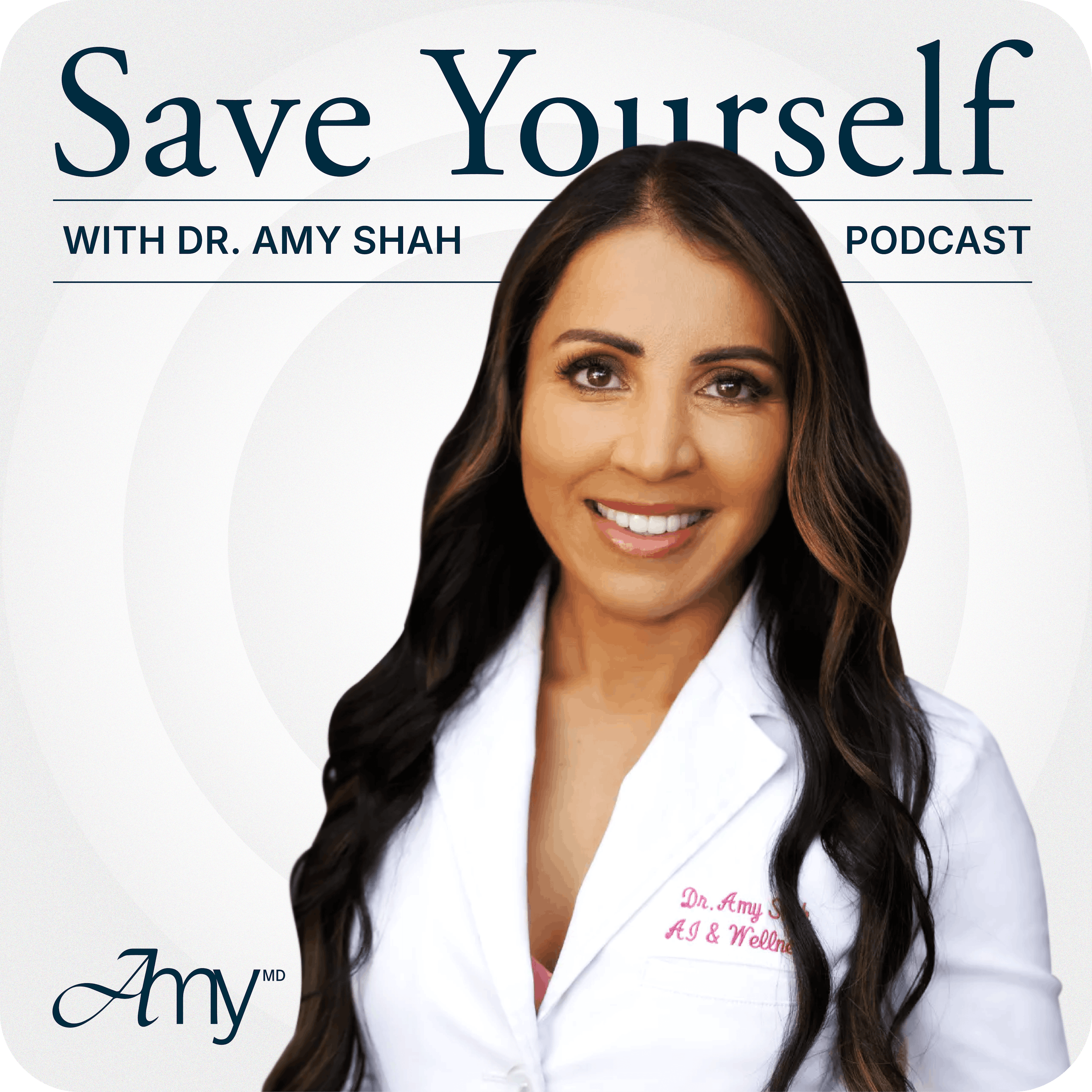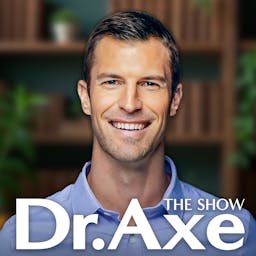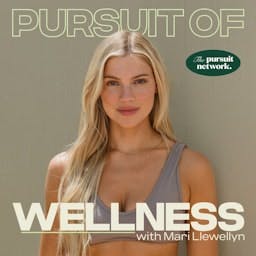.jpg)
Mindfully Integrative Show
Welcome to the Mindfully Integrative Podcast! We are dedicated to featuring inspirational and successful individuals who have embraced mindful investing to achieve optimal integrative wellness. Our podcast dives into all aspects of mindfully incorporating integrative functional health into our lives, aiming to help create a more balanced and fulfilling life. New episodes are released every Friday and cover a wide range of informative and entertaining topics, interviews, and discussions.
We explore a mindful approach to the mind-body connection with guests discussing various topics in integrative holistic health. This includes areas such as whole health, functional medicine, spiritual health, financial health, mental health, lifestyle health, mindset shifts, physical health, digital health, nutrition, gut health, sexual health, body positivity, family health, pet health, business health, and life purpose, among others.
Dr. Damaris G. is an Integrative Doctor of Nursing Practice, a Family Nurse Practitioner, a mom, and a veteran. For collaboration, interviews, or to say hi, you can contact her via email at damaris@mindfullyintegrative.com. You can also find her on LinkedIn at or https://www.linkedin.com/in/damarisdnp/. To join our membership and access resources, visit our website at https://mindfullyintegrative.com .
Please note that the information shared here is for informational and educational purposes only and should not be considered medical advice. Always consult with a physician or other licensed healthcare provider when making healthcare decisions. Enjoy the podcast!
Mindfully Integrative Show
Nourishing Your Body for Longevity and Wellness
Have you ever wondered how young your body truly feels compared to your actual age? Join Damaris Maria Grossman, a dedicated integrative DNP, as she delves into her personal health story using the expansive Function Health platform. Discover the fascinating insights revealed by over a hundred labs and biomarkers, and learn how Damaris's biological age showcases the remarkable impact of her lifestyle changes. Yet, it’s not all good news; she candidly acknowledges areas that need attention, including iron anemia, lipid protein sizes, and insulin resistance. This episode is an eye-opener on the significance of prevention and personalized health management for enhanced well-being and longevity.
Nourishment plays a pivotal role in health, and Damaris uncovers a fantastic health site dedicated to managing iron deficiency through diet and supplements. She shares expert advice on improving dietary intake, addressing genetic absorption issues, and incorporating iron-boosting foods like bone broth, collagen, fruits, and beans. Learn the impactful role of vitamin C in enhancing iron absorption and gain valuable insights into a cost-effective health program offering comprehensive lab tests. If you're keen on taking proactive steps towards better health, Damaris provides the pathway to accessible health monitoring with a special referral code. Tune in for a deep dive into optimizing your health, one biomarker at a time.
Sponsor Affiliates
Empowering Your Health
Get YOUR Own
Joburg Protein Snacks
Discount Code: Damaris15 Or Damaris18
Feeling need to Lose Weight & Become metabolically Healthy
GET METABOLIC COURSE GLP 1 REseT
This course is designed for individuals looking to optimize their metabolic health through integrative and functional medicine approaches. Whether you're on a GLP-1 medication or seeking natural ways to enhance your metabolic function, this course provides actionable steps, expert insights, and a personalized roadmap sustainable wellness.
Are you feeling stressed, tired, or Metabolism imbalanced?
Take advantage of our free mindful steps to help improve your well-being.
ENJOY ONE OF our Books
Mindful Ways Health Wealth & Life
https://stan.store/Mindfullyintegrative
Join Yearly membership ALL IN ONE FUNCTION HEALTH
Ask Us for help...
Hi, how are you? This is Damaris Maria Grossman, your integrative DNP, and today I'm going to share my screen because I want to talk about my results with Function Health and kind of how, this kind of eye-opener for what it'll be for other people. So Function Health is a platform that's used, used um, to get over a hundred labs and biomarkers to see where you are and not just a basic annual panel and to see kind of what is going on in your health. So I went and did it for myself and I wanted to even see my biological age and I wanted to then. So now I'm going to share my screen so you can see it and okay, so I'm sharing my screen. So you'll see, over here I have my your Health and then it'll have clinician's notes and it'll show what was in range, what was out of range and what means improving. You'll see, here I had 90 in range, 14 out of range, and improving. You'll see, here I had 90 in range, 14 out of range, and improving Things that we're going to go over today real quick is like autoimmunity what was in range, what was really out of range that's what I want to chat about, and then what's my biological age.
Speaker 1:So I'm in my 40s but my biological age is 29 and a half. So what that is it's like. Lets me know that what I have been doing has been working and the past year and a half to two years I have been working more about my longevity and what I'm putting in my body, what I've done mindfully with food, nutrition and overall health, and it has been working and I'm so grateful for that. And you can see, I'm in my forties but my biological age is in my twenties and I really do feel like I'm 10 years younger and I feel that way. So why is this important? What it means is that when it comes to longevity in your DNA and what you are producing and things, um, it will affect your health. Um, so that's just in the biological Now. Does that mean I was perfect? No, I do have markers that were irregular and you'll see here, um, the mean corpuscle hemoglobin concentration. I am iron anemic. I've always had a little bit of deficiency, but lately I'm a little bit more. So I have to kind of work on that Over here.
Speaker 1:These are heart markers and that's important. You know, I thought it was kind of always all situated and I noticed that I wasn't. So what this means is I really need to kind of up these or lower them depending upon the need, and it also means that I need to work on it. So you'll see here these are markers you probably have not usually seen HDL large, ldl, medium, particle numbers, peak size, small, and what this is letting you know is the size of the lipid proteins and the lipid fats. So instead of just like total cholesterol, triglycerides, hdl, ldl, this actually breaks it down and gives you more of a number, and so it'll even give you the notes here of what it's supposed to be where it's at. So over here you'll see I'm at 370. I should be below 215. What this means is that there's still presence of small dense particles.
Speaker 1:When I go back to look at that range, this is high. I'm at 1600. You know I do take omega-3, but that's more than it should be right. That should be a lot lower for my age and that's something I need to work on and eventually even maybe get some cardiac workup. How do I work on this? More cardiovascular, more, you know, checkup. I probably will get a clearly test with my functional cardiologist and you know kind of see if there's any sort of blockages. What can I improve? Yes, I've lost a lot of weight. Yes, I've improved, but you know I still have to do work.
Speaker 1:So what this is letting you know is that, like there is more to be there that is called prevention. So, if nothing else does for you, it should open your eyes and say hey, how do I prevent myself from heart attack, how do I prevent myself from X, y, z, how do I increase my longevity within my life? And how do I be happy with that? Instead of just like you know, you know, closing your eyes and being naive to what things are, or your primary or your provider is telling you that you're just fine. Sorry to tell you, most probably you're not, because 85 to 90% of my clients and patients are not fine and they their blood work comes off somewhere.
Speaker 1:Now, just because their blood work is off does not mean necessarily that I have to go and give them a medication, but that does mean that there needs to be some sort of intervention and conversation. And what that means is the conversation has to be what's? What are you eating? What are you putting in your body? Lifestyle management, things, sleep, you know? Food, um. Nutritional supplements Are they needed? What's going on, um, and then is there some sort of irregularity that's come up, and so what these markers are doing for me is saying, hey, I'm not perfect, right, I've got that going on.
Speaker 1:So, you know, my heart needs to be regulated. Even my immune regulation. It's a little lower than it should be. It should be a little bit more elevated. It means that I think, need to work on some aloe vera echinacea, you know, maybe more exercise, maybe more sleep, and then my metabolic health very poor. Lately I was on a fasting one. That still means I'm insulin resistant. That still means I need to work on, you know, trying to not get type two diabetes. That means I have to work on my things.
Speaker 1:I'm not perfect in any way, but I'm trying to change my habits and my life and that's what I want for you. It's, you know, a process, it's ongoing, it's optimal health, meaning where were you? Where can you be? Where are you right now? And then where will you like to be? And if you don't change small things each and every day, you're not going to make a difference. So for me, yes, I have iron deficiency, so that means I have to have more iron in my diet, but then that also means where is my microbiome, my heart, you know I have to then get rechecked.
Speaker 1:I then may have to get a clearly check with my cardiologist. I may need a cardiologist. Didn't think I needed one, you know. I need to see. Maybe I need a full MRI panel. Let's check it out. See what that means. My immune system it should be a little bit more up. Why is it down? What's going on Metabolically?
Speaker 1:I shouldn't have insulin resistance. I do. I'm still having a touch of insulin resistance here. My glucose is low, my insulin was high and my leptin was low. Leptin means that's what stops you from wanting to eat more. And just because my leptin is low, you would think oh wow, I'm not going to eat as much, but maybe I'm not picking the right foods. You got to have a wake-up call. You got to let yourself know what's going on by not getting enough protein. Obviously I'm not, because if I was, my protein levels would have been better. But my iron is super low. I'm around seven. It should be a lot higher. I am iron deficient, so that is normal for me. But I'm a lot lower than that and that's not good. So I will have to work on that and improve that. So these are things that I need to work on.
Speaker 1:The cool thing about this site is that it gives you foods to eat, supplements that you could also take. And then what are causes for this? So, for example, I'm low iron and you'll see here iron deficiency, which I am iron deficient. I could improve my diet. Genetically. I have some absorption issues. But it also lets me know that I really need to work on what I'm putting in my body. So maybe I need some bone broth, maybe I need more collagen. These are vegetables. I could benefit from more fruits, more beans. You know what am I putting in my body that you know could benefit? You know, increasing the iron intake and then, of course, when you're taking iron, for me vitamin C will help absorb that. So that is just a quick overview.
Speaker 1:With function health is. If you would like a link for me to invite you, I'll send you a code, but you know basically the reason I do like it for individuals that it's it's $500. You get two sets of labs. It's so much cheaper than what's been available online and you know for what I have to order people. Sometimes they have to pay thousands of dollars and it's an opportunity for them to have kind of a look there. If you have any questions, reach out to me and I'd be glad to talk with you and have a great rest of your day.
Podcasts we love
Check out these other fine podcasts recommended by us, not an algorithm.

The Dr. Hyman Show
Dr. Mark Hyman
Functional Fertility with Dr. Kalea Wattles
Kalea Wattles
On Health for Women
Aviva Romm
Save Yourself With Dr. Amy Shah
Dr. Amy Shah
Huberman Lab
Scicomm Media
The Peter Attia Drive
Peter Attia, MD
The Metabolic Classroom with Dr. Ben Bikman
Insulin IQ
FoundMyFitness
Rhonda Patrick, Ph.D.
Change Your Brain Every Day
Dr Daniel & Tana Amen
The Dr. Josh Axe Show
Dr. Josh Axe
Pursuit of Wellness
Mari Llewellyn & Pursuit Network
Feel Better, Live More with Dr Rangan Chatterjee
Dr Rangan Chatterjee: GP & Author
The Level Up Podcast w/ Paul Alex
Paul Alex Espinoza
Faith Over Fear
Jennifer Slattery, Faith Over Fear Author and Speaker
